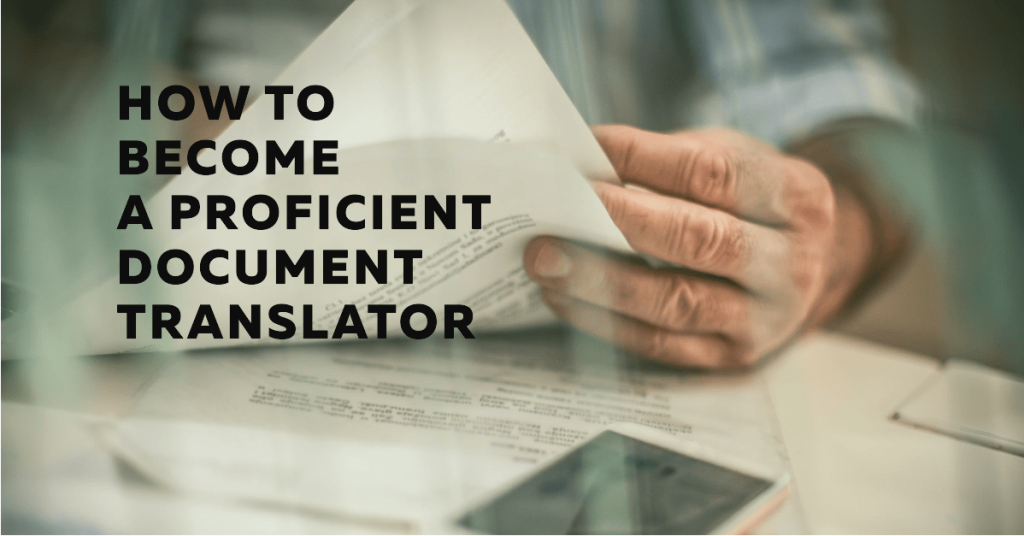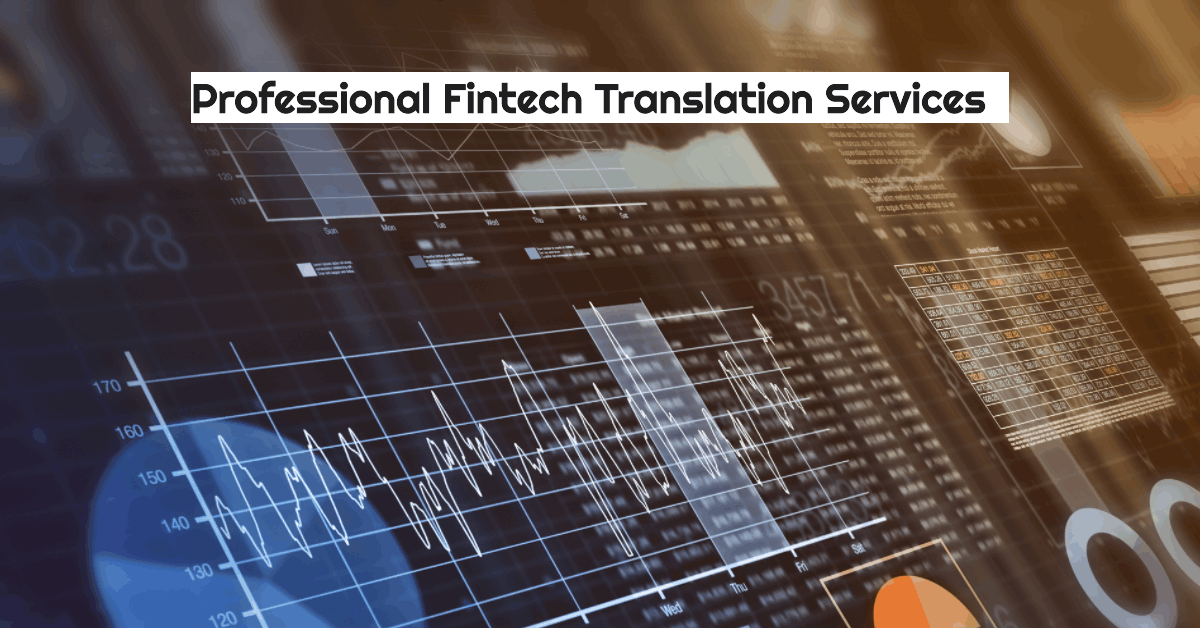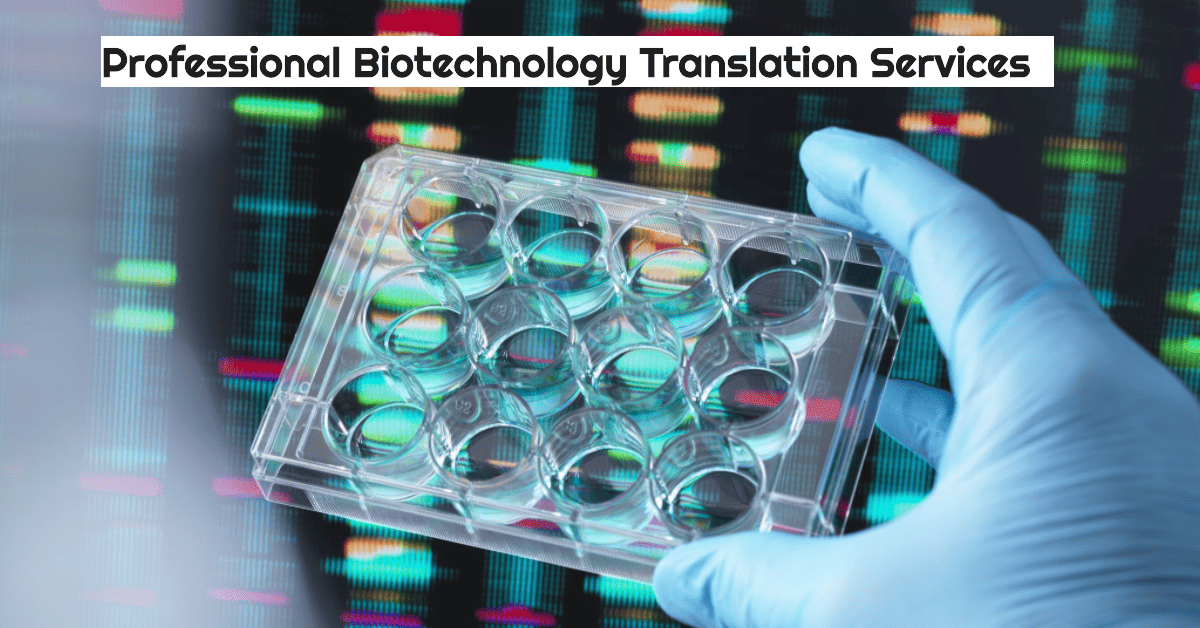Tips and Techniques to Become a Proficient Document Translator
In today’s interconnected world, the ability to communicate effectively across languages is more important than ever. Document translators play a vital role in bridging language barriers and facilitating global communication. They are the linguistic architects who transform written content from one language to another, ensuring that meaning and context are accurately conveyed.
Proficiency in document translation is not just about knowing languages; it’s about understanding cultures, mastering technical skills, and possessing a keen eye for detail. A skilled translator can bridge gaps between different linguistic and cultural worlds, enabling businesses, organizations, and individuals to connect and collaborate on a global scale.
In this article, we will explore the essential skills and techniques that make a proficient document translator. We will delve into the importance of language proficiency, subject matter expertise, cultural understanding, and technical skills. Additionally, we will discuss effective translation strategies, such as utilizing translation memories, managing terminology, and ensuring accuracy and consistency. By the end of this article, you will have a comprehensive understanding of what it takes to become a successful document translator.
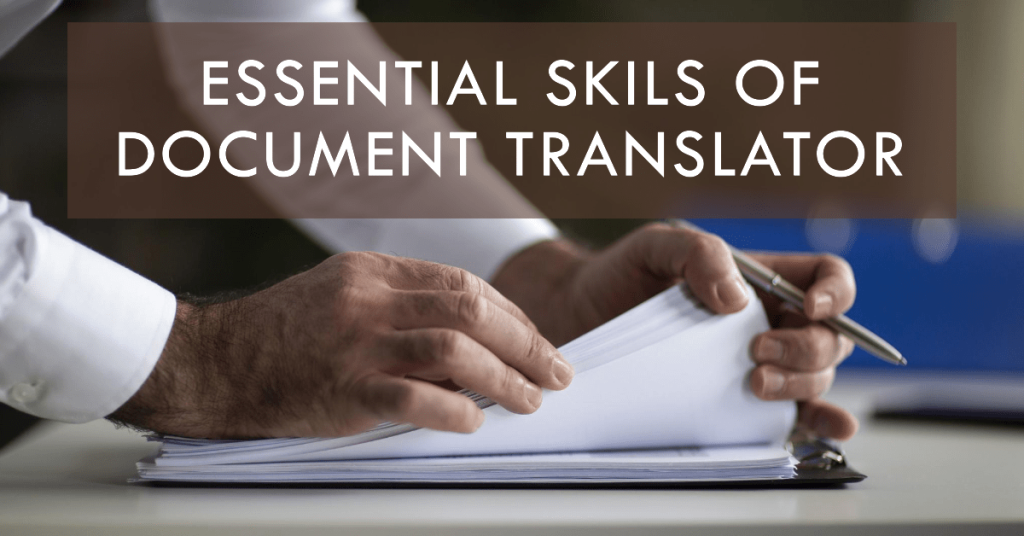
Essential Skills for Document Translators
Language Proficiency: A proficient document translator must possess a deep understanding of both the source and target languages. This includes fluency in grammar, vocabulary, and idiomatic expressions. A translator must be able to accurately convey the meaning of the original text while maintaining the style and tone of the source language.
Subject Matter Expertise: Knowledge of the specific field or industry being translated is essential for producing accurate and culturally appropriate translations. Whether it’s legal, medical, or technical, a translator must be familiar with the terminology, concepts, and conventions of the subject matter. This expertise allows them to understand the nuances of the original text and avoid errors that could lead to misunderstandings.
Cultural Understanding: Awareness of cultural nuances and differences is crucial for effective document translation. Different cultures have unique customs, values, and beliefs that can influence the meaning and interpretation of language. A translator must be sensitive to these cultural factors and avoid making mistakes that could offend or alienate the target audience.
Technical Skills: Proficiency in translation software and tools is essential for efficient and accurate document translation. Tools like CAT (Computer-Assisted Translation) software can help translators manage large volumes of text, create translation memories, and ensure consistency across multiple documents. Additionally, familiarity with terminology management tools and research databases can aid in finding the correct terminology and verifying information.
Research Skills: The ability to gather information and verify accuracy is another essential skill for document translators. Researching the subject matter, cultural context, and specific terminology can help translators ensure that their translations are accurate and informative. Accessing reliable sources and conducting thorough research can also help to avoid errors and misunderstandings.
Effective Translation Techniques for Document Translator
Translation Memory: Utilising translation memories can significantly enhance the efficiency and consistency of document translation. Translation memories store previously translated segments, allowing translators to reuse them in future projects. This not only saves time but also helps to maintain consistency in terminology and style. By leveraging translation memories, translators can reduce the need for repeated translations of common phrases and terms.
Terminology Management: Creating and maintaining a glossary of relevant terms is essential for ensuring accuracy and consistency in document translation. A glossary provides a centralised repository of terms and their corresponding translations, helping to avoid errors and inconsistencies. By using a glossary, translators can ensure that the same terms are used consistently throughout the document, improving the overall quality and clarity of the translation.
Contextualisation: Considering the context of the document is crucial for accurate translation services. The meaning of words and phrases can vary depending on the surrounding context. A translator must carefully analyze the context of the original text to ensure that the translation accurately conveys the intended meaning. This involves understanding the purpose of the document, the target audience, and the specific context in which the words are used.
Proofreading and Editing: Thoroughly checking for errors and inconsistencies is a vital step in the document translation process. Even the most experienced translators can make mistakes, so it’s essential to proofread and edit the final translation carefully. This involves checking for grammatical errors, typos, and inconsistencies in terminology. Additionally, proofreading can help to ensure that the translation flows smoothly and is easy to understand.
Localisation: Adapting the content to suit the target culture and audience is known as localisation services. This involves more than just translating the words; it also includes considering cultural nuances, regional preferences, and local customs. Localisation can involve adjusting the style, tone, and even the content of the document to make it more relevant and appealing to the target audience. By localising the content, translators can help to ensure that the document is well-received and effective in the target market.
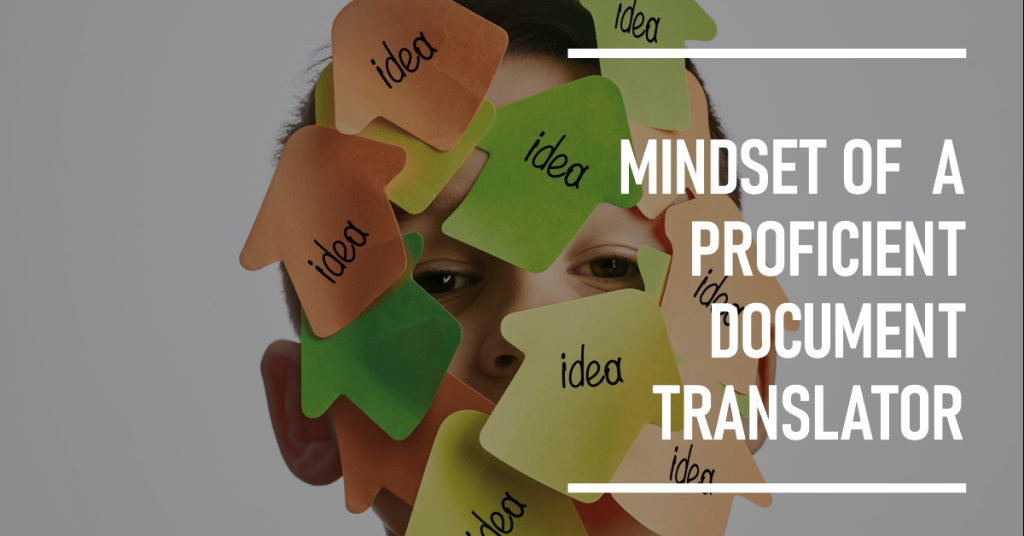
Mindset of a Professional Document Translator
Attention to Detail: A professional document translator must possess a meticulous approach to every word and phrase. The accuracy and quality of a translation depend on attention to detail, as even a small error can significantly impact the meaning of the text. Translators must carefully examine each sentence, ensuring that the translation is accurate, consistent, and grammatically correct.
Patience and Perseverance: Document translation can be a time-consuming and challenging task, requiring patience and perseverance. Translators may encounter complex or ambiguous texts that require extensive research and analysis. The ability to remain patient and persistent in the face of challenges is essential for producing high-quality translations.
Flexibility: The field of document translation is constantly evolving, and translators must be adaptable to changing requirements and deadlines. They may encounter unexpected changes in projects, such as modifications to the original text or tight deadlines. The ability to be flexible and adjust to new situations is crucial for success in this field.
Driven for Knowledge: A thirst for knowledge and a willingness to learn are essential qualities for a professional document translator. The translation industry is constantly evolving, with new technologies and techniques emerging regularly. Translators must stay curious and continuously seek to learn new things, whether it’s through attending conferences, taking online courses, or simply reading industry publications.
Ethical Standards: Adherence to professional standards and confidentiality is paramount for document translators. They must handle sensitive information with the utmost care and respect the privacy of their clients. Translators should also adhere to ethical guidelines, such as avoiding plagiarism and ensuring the accuracy of their work. By upholding ethical standards, translators can build trust with their clients and maintain a positive reputation in the industry.
Continuous Learning and Professional Development to Become a Proficient Document Translator
Staying Updated: The document translation industry is constantly evolving, with new technologies, tools, and best practices emerging regularly. To remain competitive and provide the highest quality of service, translators must stay updated on industry trends and developments. This can be achieved through reading industry publications, attending conferences, and following relevant online resources.
Professional Development: Investing in professional development is essential for translators who want to advance their careers. Attending conferences, workshops, and webinars can provide valuable insights, networking opportunities, and opportunities to learn from industry experts. These events can also help translators stay up-to-date with the latest trends and best practices.
Networking: Building relationships with other translators and industry professionals is crucial for professional growth and development. Networking can provide opportunities for collaboration, mentorship, and sharing best practices. Attending industry events, joining online forums, and participating in professional organizations can help translators expand their network and connect with like-minded individuals.
Mentorship: Seeking guidance from experienced translators can be a valuable way to learn and develop your skills. Mentors can offer advice, support, and feedback, helping translators to overcome challenges and achieve their career goals. Mentorship relationships can be formed through professional organizations, networking events, or online communities.
Feedback and Self-Assessment: Regularly evaluating your work and seeking feedback is essential for continuous improvement. By analyzing your translations and seeking feedback from clients or colleagues, you can identify areas for improvement and develop strategies for enhancing your skills. Self-assessment can also help you to build confidence and identify your strengths and weaknesses.
Challenges and Solutions to Become a Professional Translator
Common Challenges: Document translators often encounter various challenges that can impact the accuracy and quality of their work. Some common challenges include:
- Ambiguity: Texts can sometimes be ambiguous or open to multiple interpretations. Translators must carefully analyze the context and use their knowledge and experience to determine the most appropriate meaning.
- Technical Terminology: Translating highly technical or specialized documents can be challenging due to the complex terminology involved. Translators must have a deep understanding of the subject matter and be able to accurately convey the meaning of technical terms.
- Cultural Differences: Cultural nuances and differences can make translation challenging. Translators must be aware of cultural sensitivities and avoid making mistakes that could offend or alienate the target audience.
Overcoming Challenges: To overcome these challenges, translators can employ various strategies:
- Research and Analysis: Thoroughly researching the subject matter and context of the document can help to clarify ambiguities and ensure accurate translation.
- Consultation: Consulting with subject matter experts or other translators can provide valuable insights and help to address challenges.
- Cultural Sensitivity Training: Understanding cultural nuances and differences can help translators avoid mistakes and create more culturally appropriate translations.
- Continuous Learning: Staying updated on industry trends and developments can help translators to address new challenges and improve their skills.
Building Resilience: Document translation services can be a demanding and stressful profession. Building resilience can help translators to cope with challenges and maintain a positive outlook. Some strategies for building resilience include:
- Time Management: Effective time management can help to reduce stress and prevent burnout.
- Self-Care: Taking care of your physical and mental health is essential for maintaining resilience.
- Support Networks: Building relationships with other translators and industry professionals can provide support and encouragement.
- Positive Mindset: Cultivating a positive mindset can help to overcome challenges and maintain motivation.
Conclusion
Becoming a proficient document translator requires a combination of essential skills, effective techniques, and a positive mindset. Throughout this article, we have explored the key elements that contribute to success in this field.
Key points discussed include the importance of language proficiency, subject matter expertise, cultural understanding, technical skills, and research skills. Effective translation techniques such as translation memory, terminology management, contextualization, proofreading, and localization are also crucial. Additionally, a professional document translator must possess a mindset characterized by attention to detail, patience, flexibility, curiosity, and ethical responsibility.
Continuous learning and development are essential for staying competitive and providing the highest quality of service. By staying updated on industry trends, attending professional development events, networking with other translators, seeking mentorship, and seeking feedback, translators can enhance their skills and advance their careers.
If you are passionate about languages, cultures, and communication, a career in document translation can be both rewarding and fulfilling. By developing the necessary skills and adopting a positive mindset, you can become a proficient and successful document translator.
Frequently Asked Questions (FAQs)
Q1: What is a proficient document translator?
A proficient document translator is a skilled professional who can accurately and effectively translate written content from one language to another. They possess a deep understanding of both the source and target languages, as well as the cultural nuances and subject matter expertise required for accurate translation.
Q2: How can I become a proficient document translator?
To become a proficient document translator, you should:
- Gain language proficiency: Develop fluency in both the source and target languages through education, language immersion, or practice.
- Acquire subject matter expertise: Specialize in a particular field or industry to gain a deep understanding of the terminology and concepts involved.
- Develop cultural understanding: Learn about cultural differences and nuances to ensure accurate and culturally appropriate translations.
- Master technical skills: Become proficient in translation software and tools, such as CAT tools and terminology management systems.
- Gain experience: Seek opportunities to translate documents in your chosen field and continuously improve your skills.
Q3: What are the key skills of a proficient document translator?
Proficient document translators possess a range of essential skills, including:
- Language proficiency: Fluency in both the source and target languages
- Subject matter expertise: Knowledge of the specific field or industry being translated
- Cultural understanding: Awareness of cultural nuances and differences
- Technical skills: Proficiency in translation software and tools
- Research skills: Ability to gather information and verify accuracy
Q4: What are the benefits of working with a proficient document translator?
Working with a proficient document translator offers several benefits, including:
- Accurate and reliable translations: Proficient translators ensure that the meaning and context of the original document are accurately conveyed in the target language.
- Cultural sensitivity: They are aware of cultural nuances and can adapt translations to suit the target audience.
- Time and cost savings: By using translation memories and other efficient techniques, proficient translators can save time and money.
- Improved communication: Accurate translations facilitate effective communication and understanding between different cultures and languages.
